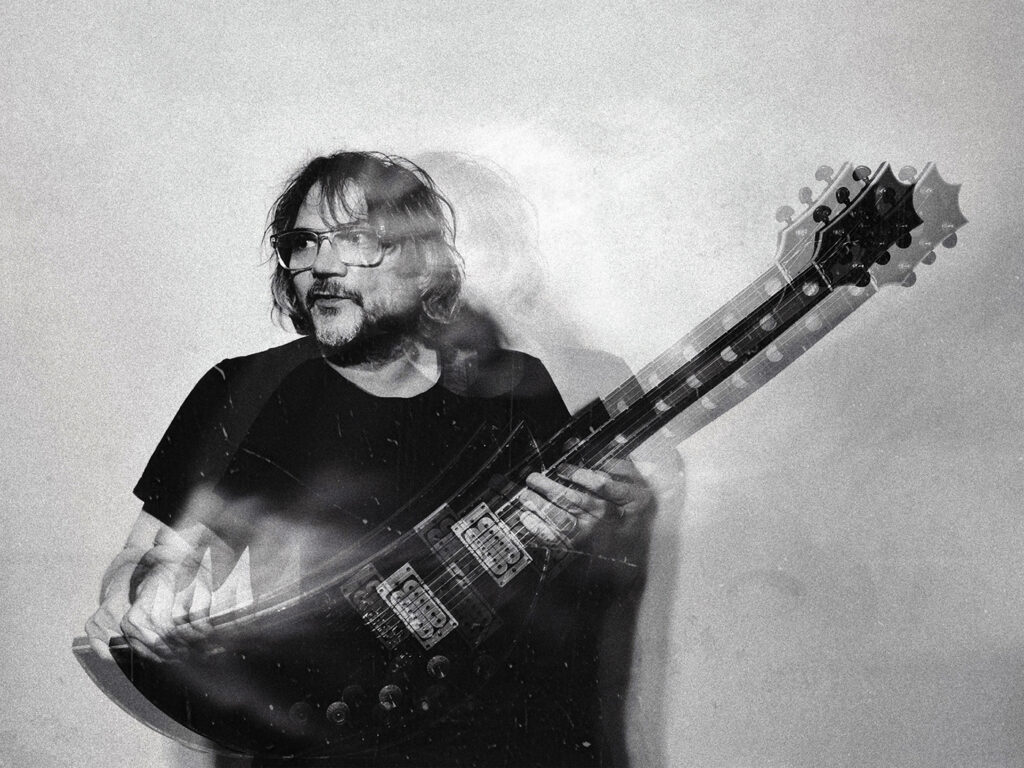Jeff Tweedy’s Twilight Override reviewed: Wilco frontman’s triple album is a gentle salve in stormy times

It was novelist and critic John Berger who first posited that “calm is a form of resistance”. Who knows if Jeff Tweedy was channelling that sentiment while creating the gentle behemoth that is Twilight Override, but he has certainly responded to the maelstrom of paranoia and inhumanity unleashed by the second Trump term – what the Wilco frontman has dubbed “a bottomless basket of rock bottom” – with a disarming composure, and a big batch of tunes for his fifth solo outing.
A 30-song triple album of mostly mellow consolation
It was novelist and critic John Berger who first posited that “calm is a form of resistance”. Who knows if Jeff Tweedy was channelling that sentiment while creating the gentle behemoth that is Twilight Override, but he has certainly responded to the maelstrom of paranoia and inhumanity unleashed by the second Trump term – what the Wilco frontman has dubbed “a bottomless basket of rock bottom” – with a disarming composure, and a big batch of tunes for his fifth solo outing.
Twilight Override is a 30-song triple album of mostly mellow consolation, insightfulrather than intimidating. In the studio performance video for “Feel Free” – one of four tracks released in advance of the album – there is a glimpse of a sign on the wall of Wilco’s Chicago studio, The Loft, saying ‘It Could Be Worse’. The song itself is a seven-minute invitation to shut out the white noise and slow down, to lay down anger and concerns, “to fall in love with the people you know and fall harder for the people you don’t”.
Tweedy is not in this alone. The album bears his name, but it is an assiduously arranged band record featuring his sons Spencer and Sammy and compadres James Elkington, Sima Cunningham, Macie Stewart and Liam Kazar, written with their capabilities in mind and recorded with the intention of capturing a communal warmth. The soothing backing vocals alone could be marketed as a cure-all balm.
“I don’t want to write about all the things I’m still working out”
The songs are grouped notionally to represent the past, present and future, though the distinction between each record is a little blurry. It is possible, even recommended, to take in Twilight Override in a single seamless sitting. It’s no pleasure cruise but the scenic rewards are there, from peaceful vistas to invigorating stormy weather and back to calmer waters.
Opening track “One Tiny Flower” takes one such mini-outing, into the joys of urban rambling, which many pursued during the pandemic. The mesmeric acoustic arrangement gradually takes a more torrid turn, as the natural world order fragments and more dissonant notes are sounded. The pacey yet plaintive “Caught Up In The Past” also has the air of a cautionary Covid reflection, with Tweedy making poetic observations from the sidelines over a cantering rhythm. He breaks into shrewd spoken word on thrift shop symphony “Parking Lot”, concluding with quiet desperation, “I’d like to teach the world to sing…fuck…anything”.
Lovers of a Wilco blowout better dine out quickly on the grungey guitar wrangling and rag-tag chorale of “Forever Never Ends”, because most of the songs on the first record are studies in restraint, be it the beautiful desolation of “Love Is For Love” or the languorous Laurel Canyon vibes of “Betrayed”. This first set ends with “Throwaway Lines”, a pitch-perfect troubadour confessional in which Tweedy wrestles with the art of the lyric, worried he’ll give too much away (“I don’t want to write about all the things I’m still working out”) while knowing that deeper resonance is surely the songwriter’s goal.
As if taking his own counsel, the second record is more about gentle modulation of mood than individually spectacular songs, though the easy propulsive rhythm of “Out In The Dark” and pocket guitar oratorio at the heart of “New Orleans” make their mark before Tweedy and band pitch into some cultural specifics.
A reassuringly empathetic tap on the shoulder
Kicking off the third LP, “Lou Reed Was My Babysitter” is inspired by the great man’s louche rock’n’roll, while “Amar Bharati” is a whimsical tribute to the Hindu sadhu who has kept his right arm raised for peace for over 50 years. “Stray Cats In Spain” is exactly what you might hope for, a snapshot of the rockabilly favourites in Iberia, one among a handful of pleasures set to a two-chord scratchy strum. “Ain’t It A Shame” is a deliberately creaky meditation on the past, present and future, lamenting lost youthful optimism with a sage cynicism. Tweedy sounds close to breaking on “This Is How It Ends”, but there is warmth amidst the fragility. In contrast, the title track is a feast of buoyant picking, enhanced with the muffled patter of drums and sighing strings.
Tweedy and band maintain a bittersweet equilibrium across these later stages of the journey, before the burnished indie blues parting shot of “Enough”, replete with musical and lyrical nods to “Waterloo Sunset” and “Like A Rolling Stone”. Like the rest of the collection, it is a reassuringly empathetic tap on the shoulder for those in need of succour and a steer.
When you purchase through links on our site, we may earn an affiliate commission. Here’s how it works.
Link to the source article – https://www.uncut.co.uk/reviews/jeff-tweedys-twilight-override-reviewed-wilco-frontmans-triple-album-is-a-gentle-salve-in-stormy-times-151581/
-
Chords CheatSheets (Ukulele)- Ukulele Chord Poster Beginner, Laminated Ukulele Chord Chart, Circle of Fifths Chart, Ukulele Chords Chart for Music Theory, Ukulele Cheatsheets Bundle A4 (8.5×11)$10,95 Buy product
-
Dean Acoustic-Electric Bass, Classic Black$299,00 Buy product
-
Sterling by Music Man StingRay Ray5 Bass Guitar in Mint Green, 5-String$399,99 Buy product
-
Novation FLkey Mini Compact MIDI Keyboard for FL StudioBuy product
-
Fluid Audio FC10S: 10-inch Powered Reference Studio subwoofer, 200W Class D, 20-200Hz, auto stanby, GND Lift$399,00 Buy product
-
Fender FA-115 Dreadnought Acoustic Guitar – Black Bundle with Gig Bag, Tuner, Strings, Strap, Picks, and Fender Play Online Lessons$199,99 Buy product












Responses